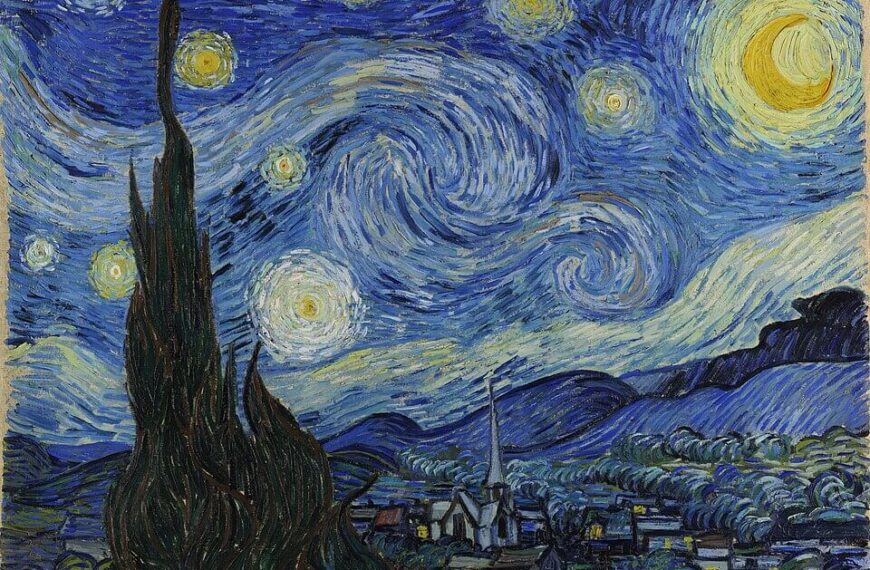 The interplay of different cultures – read multiculturalism – opens the horizons to a person, who is compassionate and deeply observant. As a Dance/Movement Therapist, nonverbal communication is the soul of communication for Johanna. Here’s an insightful exploration of Ghana, in New York, because of her housekeeper, Rose, and her conversations with cab drivers from that country. A Different Truths excusive for the Special Issue on Africa.
The interplay of different cultures – read multiculturalism – opens the horizons to a person, who is compassionate and deeply observant. As a Dance/Movement Therapist, nonverbal communication is the soul of communication for Johanna. Here’s an insightful exploration of Ghana, in New York, because of her housekeeper, Rose, and her conversations with cab drivers from that country. A Different Truths excusive for the Special Issue on Africa.
Preface: This article for the ‘Africa’ edition of ‘Different Truths’ represents the inauguration of a long brewing project of profiles. A reward for the challenges of navigating daily life in NYC is, that if one allows oneself to fully participate in moment-to-moment interactions, navigating in NYC can be like travelling the world. In these profiles, I will share some of the richness that has become part of the fabric of my daily life. It is my hope that it will inspire similar excursions, wherever you are in our most multi-culti world.
#1: Life with Rose in NYC: Our Ashanti Royal Family
Twenty eight years ago I received a call from my dear friend Barbara: ‘Do you need a housekeeper?, I was in an accident’ said Barbara, ‘and my leg was broken. I needed a home health care attendant, so I called the agency of the ‘7th Day Adventists’ and Rose was sent to me’. She is supposed to help me with the ‘activities of daily living’ which she does, but she doesn’t stop. She is like a tornado taking care of me and my whole home.’
Now that was an offer I couldn’t refuse! Our wonderful housekeeper had just announced that she was retiring and returning to her native Virginia. The timing was necessary and perfect; enter Rose into our life. Being a Dance/Movement Therapist, with many years of ‘war injuries accrued from working with wildly psychotic patients on stone floors, I have many physical challenges. Though I can still dance, regular life activities are frequently very challenging. For example, on my last teaching trip to Amsterdam, my students could not believe that the same person that had just danced full-out with them for six hours needed to use a cane to navigate the cobblestone streets of Amsterdam.
It is hard to remember life before Rose. Twenty eight years is a very long time, no matter how long your life has been.
Quietly, Rose came in and took charge of our apartment that seriously needed to be tamed. In her clear but understated way, Rose formed a partnership with me immediately. We naturally began a relationship that gradually moved into being like sisters; not only on a personal level, but on a cultural level as well.
I knew some basic parts of Rose’s history: she had recently moved here from Kumasi, Ghana, with her husband Paul, and then, their three children from Ghana were able to join them. I knew that Paul was a taxi driver, and that they lived in Tracey Towers in the Bronx, a place that could have been called ‘Little Ghana’ at the time.
I knew that they were Ashanti, and that there was some ‘serious royalty’ in their background, though it was never focused on. I knew that Paul was the head of the ‘Ghanaian Cab Driver’s Association’ a fraternal/benevolent association for drivers from Ghana. In other words, it was an organization where drivers tended to one another’s needs; if there was an illness or a death in the family, or some other urgent need, members mobilized.
Rose’s life and culture and ours gradually started melding. Because I was raised in a family where attention to, and embracing different cultures was a major part of the ethos, and because my work focused on dealing with the elemental non-verbal level of cultures, I was primed and ready.
 When Rose had her last child, Jessica, 17 years ago, Bob and I were invited to the ‘baby naming ceremony.’ It was clear that this was a very important rite of passage in Ghanaian culture and we were much honored to be included.
When Rose had her last child, Jessica, 17 years ago, Bob and I were invited to the ‘baby naming ceremony.’ It was clear that this was a very important rite of passage in Ghanaian culture and we were much honored to be included.
It was a very large gathering at their very large apartment in Tracey Towers—again, the ‘Little Ghana’ of the Bronx. When we entered, it was clear that preparations had been going on for a long time, with many participants involved. Food was cooking on the stove, all kinds of troops and dishes were arriving. There was a feeling of this being a ‘well-oiled machine’. It was clear that a great deal of labor had taken place, and it was all a labor of love.
Bob and I were the only non-Ghanaians there. We were very much welcomed, and a neighbor, who had an import/export business of traditional clothing from Ghana ran up to his apartment and returned with traditional ceremonial attire for Bob and for me. I was whisked into the bedroom with an 11 year old girl, who dressed me from head to toe, in traditional ceremonial clothing. It was very beautiful, and I felt embraced by the whole experience.
There was visiting, and eating and drinking, and dancing for all of us to connect. Let’s just say it was ‘Heaven’ for a Dance/Movement Therapist, and Bob was equally happy.
I was impressed by the wide range of Rose and Paul’s family and friends – where they lived, the kind of work they did and their status. On the surface, Rose and Paul were of relatively ‘proletariat’ status. The rest of the guests were of very varied backgrounds and realms of work, from seemingly humble to very elite. There were members of the Ghanaian Consular community there, as well as other very upper class business people. I was immediately impressed with how varied a community this was. It also seemed clear that it was an ‘extended family’ and everyone felt interconnected.
The whole experience was extraordinary, but the peak moment was ‘The baby naming ceremony itself.’ Jessica, 4 months old at the time, was passed around to all the guests at the event. She appeared entirely comfortable being handed from the arms of one person to another, with each taking time to commune with her.
To give a word of background, why I was so ‘blown away’ by this seemingly normal event in this culture: as I said, I am a Reichian (RT) mind/body psychotherapist and a dance/movement therapist (D/MT) I am a Laban Movement Analyst (LMA), with a specialization in cross-cultural nonverbal expression, Choreometrics. Choreometrics looks at the way that culture is conveyed in how people inhabit their bodies, how they move dynamically, how they interact, and how they use space. I am a clinician and professor of Dance/Movement Therapy, Reichian Therapy Mind/Body Character Analytic Therapy, and Laban Movement Analysis.
Shortly before this Jessica’s Baby Naming Ceremony, I had been part of an international conference at the Vrij Universiteit—Free University in Amsterdam, on the uses of psycho-motor therapy throughout the world. In other words, the varied forms of therapy and nonverbal communication observation that work primarily with the elemental non-verbal level of process were being explored. It is on this level where cultural identity is most immediately experienced. This is why this rite of passage was so stunning for me.
At this conference, I was presenting the modality that I created combining D/MT, RT, and LMA. (I will share more on my own work in a later article.)
I had previously lived in the Netherlands and I brought American Dance/Movement Therapy there. I returned to teach and supervise and consult, and trained many generations of DMT’s. So being part of this conference at the VU was like a reunion, reconnecting to colleagues and former students, and connecting with colleagues from all over the world doing related work.
The presentation that affected me the most deeply was a panel chaired by my dear friend and colleague whom I had worked with in a psychiatric treatment center in the NL. I had also taught for Iman’s classes in movement studies in the Vrij Universiteit.
The primary focus of this panel was their discovery that cultures divided between two polarities: ‘individualistic, and communal.’ They had realized that coming from a cultural model that was ‘individualistic,’ and therefore emphasized one to one interventions in psychotherapy, they were completely losing their clients that came from communal cultures, where only group and cultural interventions had any relevance. The clients they were addressing were from North Africa, but the same would have been true for other ‘communal’ cultures.(Another theme to be developed at a later date)
To sum up the lessons learned and applied at the baby naming ceremony: watching Jessica being passed around, placid in the arms of one guest to another, I realized ‘Of course, this is how a communal culture is created(!)’ Ghanaian culture is one where people feel responsible to one another. If a child needs care or is misbehaving, any adult can freely intervene. If anyone is in need, everyone feels like it is their responsibility to intervene. For instance, if an elderly person needs assistance ambulating, people are right there.
I was able to re-construct my whole experience with Ghanaian culture from this premise, almost always for the better.
To put this in further context, I was also reminded of my good friends Leila and Birame from Tunisia and Senegal respectively. When I visited them where they lived in Paris, they had an au pair from Senegal, Fatma. When their son, Meissa was very small, he referred to Leila and Fatma as ‘mama.’ When Leila’s Parisian neighbor’s heard this they asked ‘Aren’t you upset to hear your son call another woman ‘Mama’?! Leila replied ‘No, the more mothers the better!’ Now, this defines the quintessence of ‘communal culture.’
Returning to our Ghana/NYC connection, Rose and I, and then our husbands and families learned about one another’s cultures in an entirely organic way.
I learned very quickly that Ghanaian culture was ‘communal’, on the other end of the spectrum from America’s ‘individualism’, without having the constructs at that time, but intuitively ‘getting it.’ When Rose needed to go to Ghana for family responsibilities, she sent first her eldest daughter Juliette, 17 at the time, or Rose’s closest friend, Adwa Sewa to substitute.
With Juliette then, we had our own ‘on site adolescent.’ Throughout the maturation of all of our relationships, we were able to enjoy Juliette’s becoming an adult, a married woman and a mother on her own. Now when Rose has to go to Ghana for family responsibilities or vacations, we organize brief reunions with Juliette. (Please see fabulous photograph)
When I needed to have my first D/MT induced major surgery in 2006, I knew I would need assistance. Rose’s father was critically ill in Ghana, and she needed to be with him. She was torn because she wanted so much to care for me after my surgery. I was moved and insisted, as did her father and everyone else, that she needed to go to Ghana.
Rose sent her niece to work with me. It was an entirely different experience, because her niece, ‘Diana’, had only worked in Ghana, and had a very different rhythm than Rose. Suffice it to say that when I was on crutches a few weeks after my surgery, I moved much faster than ‘D’. Nonetheless, I learned huge lessons in Ghanaian culture during my recovery with D.
When I first had my foot surgery, despite preparation for several months for being able to ‘weight bear on crutches’ I ended up needing to be in a wheel chair for the 1st week after surgery. D, who had a child who was disabled, was brilliant navigating me in my wheelchair, and altogether too familiar with the way that disabled people in wheelchairs are treated in daily NYC life. When we needed to go to the doctor, taxis would turn on their ‘off duty’ signs and cross the avenue to get away from us. Pretty soon it became clear that any cab that stopped for us had a Ghanaian driver(!)
When I finally remarked on this, the drivers would all say a version of ‘We believe in Karma, it could be us, it could be a member of our family, service to people in need is how we are raised.’ With my experience with an Indian spiritual teacher, this was an entirely familiar concept. I was so moved to find that it was central to Ghanaian culture as well. I certainly had the experience of the ‘extended family of the Ghanaian Community.
‘Give it to Ghana’
Living in a much too small NYC apartment, the challenge is always ‘clearing out.’ Early on in our connection I realized that Rose and I were of similar size and, that her family could also use ‘hand me downs’. What we also found out was, the Ghanaian community was so communal that, they frequently sent large containers to Ghana, for their family and extended family there. So, whenever Bob and I were motivated to let go of things that it was hard to let go of we said ‘Let’s give it to Ghana’. And that is how our interconnected lives have continued.
So, I realise that to share all there is to share of our relationship to Rose and her family, it would require many tomes — or films.
For the purpose of the ‘Africa’ edition of Different Truths, I will try to supply the ‘abbreviated version.’
For the last 28 years, Rose and Paul and Bob and I have had a very interconnected extended family. For  instance, as an ‘Access-A-Ride’ passenger in the NYC taxi system for the past twelve years, I have interfaced with drivers from Ghana very frequently. When I have discussed my relationship with Rose and Paul, I have heard from one driver ‘Paul is my best friend, I danced with you at the baby naming ceremony.’ Another said, ‘Rose and Paul and I lived together when we first came to NYC, we are family.’
instance, as an ‘Access-A-Ride’ passenger in the NYC taxi system for the past twelve years, I have interfaced with drivers from Ghana very frequently. When I have discussed my relationship with Rose and Paul, I have heard from one driver ‘Paul is my best friend, I danced with you at the baby naming ceremony.’ Another said, ‘Rose and Paul and I lived together when we first came to NYC, we are family.’
This past year, Bob and I were traveling from an Ethiopian restaurant near my psychotherapy office to a friend’s Middle Eastern dance concert in mid-town. Whenever a driver seems interested in an exchange, I have a conversation with him/ or her. This night, our splendid Ghanaian driver, Ga from Akra, said, ‘If your Rose is Ashanti, she must know about the funeral of the Ashanti Queen. Ask her about it.’ Then, our wonderful driver found the video of the funeral of the Ashanti Queen on is phone, and passed it to us.
Bob and I watched the film and were overwhelmed. It was a very professional film done for television. We first saw the funeral procession and the professional mourners. We then saw several segments of the funeral ritual, followed by a view of the women dancing. When I saw the women dancing I said to Bob ‘They all look like Rose!’ He watched it and agreed ‘Indeed, they all look like Rose!’ I knew that Ashanti women were renowned for their beauty, and that Rose was beautiful, but the likeness was too extreme. As Bob agreed, ‘They all look like Rose!’
So, our wonderful Ga driver said ‘You have to ask Rose when you see her about the funeral.’
Two days later we saw Rose, and we told her the story. Rose laughed and said, ‘Of course they all look like me that is my family!’ Did you see the fat woman in the middle of the event? She is my sister, she is the new Queen! My uncle was the past King.’
Bob asked, ‘So Rose, could you be the new Queen?!’ She said ‘Yes and No’.
Rose explained: ‘The Royal Family needs to be Juju (indigenous religion). My father raised us Christian. We were of the royal family, but we could not qualify to be royalty because we were not Juju. My uncle was the past King. My aunt was the past queen.’
‘So Rose, how could your younger sister be the new Queen?’
Rose explained: ‘As I said, my Father raised us all Christian. My youngest sister was much younger, coming from another mother. She was in a school play where she wore traditional Ashanti attire. Then, ‘the spirit called her’ and she went to find members of the family who were living in traditional Juju culture. That was how she grew up. That is why, when the Queen died, at 109, she was chosen as the next in line.’
It has been a long process to unfold this story and find the documentation. Rose’s family, like many Ghanaian’s is far flung. I knew that she had sisters in Germany, and family in Ghana, as well as here in NY.
We were able to do the ‘detective work’ involving the whole family. Please enjoy the verbal documentation, the photographic documentation and the video-documentation, which, required the involvement of the entire family, and the extended family.
In the contemporary cross-cultural parable of Cinderella, when Bob saw Rose after this event, he asked ‘So Rose, should I be bowing to you?’ ‘Yes!’ she said. And so continues our beautifully interwoven Ghanaian/American existence, with now, an incredibly regal twist.
P.S. Contemporary cross-cultural parable of Cinderella, when Bob saw Rose after this event, he asked, ‘So Rose, should I be bowing to you?’ ‘Yes! she said.’
Namaste to the whole Different Truths community.
©Johanna Climenko
Photos sourced by the author
#NYC #GhanaInNY #Africa #SpecialFeature #PeopleOfAfrica #AfricansInNYC #AfricanAmerican #DifferentTruths





 By
By
 By
By

 By
By